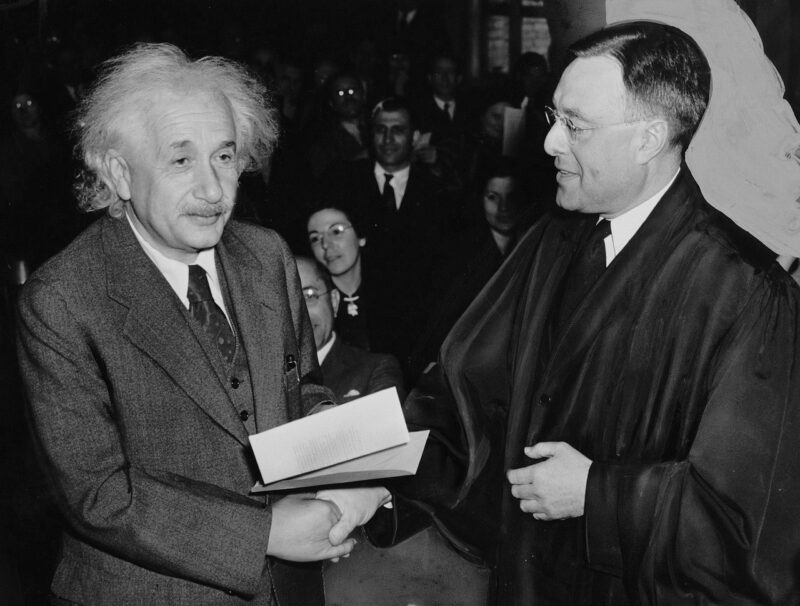The Time Albert Einstein Turned Down the Presidency of Israel
November 15, 2024

In 1952, Albert Einstein was offered an unexpected honor: the presidency of the newly established State of Israel. This proposal, rooted in the admiration for Einstein’s contributions to science and humanity, was not met with enthusiastic acceptance. Instead, Einstein declined the position, setting the stage for a fascinating exploration of his values, beliefs, and the historical context surrounding this intriguing offer.
1. The Historical Context of Israel’s Formation
The establishment of Israel in 1948 was a monumental event, emerging from decades of Jewish aspirations for a homeland and a response to the horrors of the Holocaust. Following World War II, the United Nations proposed a partition plan that led to the creation of a Jewish state in Palestine, sparking both hope and conflict within the region.
Einstein, a prominent Zionist who advocated for a peaceful coexistence between Jews and Arabs, was deeply invested in the future of the Jewish people. He supported the Hebrew University of Jerusalem and the establishment of various cultural and educational initiatives. However, when the presidency was offered to him, the complexities of the situation and his personal ethos came to the forefront.
2. Albert Einstein’s Inward Conflict
Einstein’s reluctance stemmed from various sources:
- Philosophical Beliefs: Einstein was a firm believer in pacifism and held a vision of a world where diplomacy triumphed over conflict. He felt that a presidential role would inherently involve political strife and militarism, opposing his ethical principles.
- Political Stance: Einstein was apolitical by nature. While he had strong opinions about social issues, he distanced himself from direct political involvement. He feared that accepting the presidency would pull him into the political realm in a way that contradicted his beliefs of moral integrity.
- Cultural Concerns: He expressed concern about the internal political divisions in Israel. Einstein believed that the nascent state should prioritize peace and integration with its Arab neighbors, fearing that his presidency might advocate methods that conflicted with these ideals.
While his role as a scientist granted him global respect, Einstein understood that a political position would vastly differ from his scientific pursuits, pushing him into realms he was uncomfortable navigating.
3. The Offer and Its Implications
In late 1951, Chaim Weizmann, the first president of Israel, passed away. The government of Israel sought Einstein’s leadership as a way to unify the nation and gain international respect. In a letter dated November 17, 1952, the Israeli government formally extended the offer to Einstein, recognizing his stature not only as a scientific genius but also as a symbol of hope and progress for Jewish people worldwide.
Einstein’s initial reaction was one of surprise and confusion. He felt honored, stating that “the prospect of being called to serve as president of the state of Israel is an honor, but I must respectfully decline.”
4. Einstein’s Response to the Presidency Offer
Ultimately, Einstein penned a gracious letter to the Israeli government explaining his decision. In this letter, Einstein articulated his sentiment:
“I am deeply moved by the offer from our State of Israel, and yet it is a responsibility that I cannot accept. I have observed how much work is necessary to bring peace and security to every nation; I do not feel that I am suited for this job.”
He further continued to emphasize his commitment to peace, underscoring that his moral convictions and understanding of governance did not align with the expected political activities demanded by the role, concluding that the presidency would detract from his ability to advocate for peace.
By declining the presidency, Einstein’s legacy as a scientist contrasted sharply with the political realities of the emerging Middle Eastern landscape.
5. The Legacy of Einstein’s Decision
Einstein’s decision not to lead Israel sent ripples through both the scientific and political communities. It showcased a profound aspect of his personality: a commitment to ideals over power.
While many looked to Einstein as a possible leader, he continued his work in physics, maintaining his ideals of placing intellectual contributions above political authority. His refusal signified a critical understanding that leadership roles often compromise ethical beliefs. Einstein later contributed significantly to humanitarian efforts, advocating disarmament and social justice.
Moreover, his thoughts on coexistence later informed various discussions about peace, even if they often went unheeded.
Conclusion: A Man of Principle
Einstein’s response to the presidency of Israel encapsulates the essence of his character. He was a man of principle who prioritized humanistic values over political ambition. By rejecting the role in favor of his ideals, he highlighted the importance of ethical leadership during a time fraught with conflict and change. His legacy extends beyond his scientific achievements; it branches into the core of ethical governance and a vision of peace.








